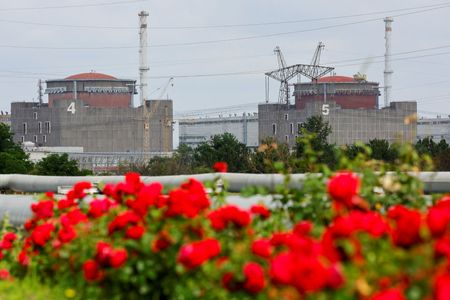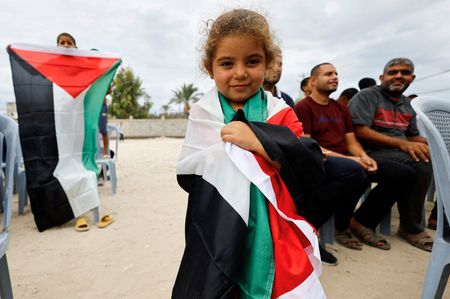GENEVA (Reuters) -The U.N. children’s charity said on Thursday it had to suspend a pre-approved mission to transfer two newborn babies from Gaza City because they did not get Israeli security clearance as military operations continue despite a new ceasefire deal.
The babies are part of a group of 18 newborns in north Gaza hospitals whom U.N. agencies have been trying to evacuate amid an ongoing Israeli assault on the enclave’s largest urban area.
The two newborns, both less than a month old, were left behind in incubators at Al Helo Hospital because they could not be safely transferred along with their parents who fled north Gaza alongside hundreds of thousands of others, UNICEF says.
“We put them in the back of the car and took them to our office and we were waiting for clearance to leave from there. Unfortunately we didn’t get that clearance,” Hamish Young, Senior Emergency Coordinator for UNICEF, said in a message sent to Reuters from Gaza City, speaking over machine gun fire.
COGAT, the arm of the Israeli military that oversees aid flows into Gaza, did not immediately respond to a request for comment. It has previously disputed claims it does not allow medical transfers.
UNICEF shared images of the babies wrapped in heavy blankets in a U.N. vehicle taken during the 14-hour mission.
Young said that the babies were placed back in incubators in Gaza City’s Al Helo Hospital, which was shelled last month, and that ongoing military activity was preventing any further attempt to move them.
“There are drones and quadcopters still flying around and there’s some heavy machine gun fire. We’re still determined to get these babies back to their parents in the south,” he said.
According to an Israeli official, the ceasefire will go into force within 24 hours of a cabinet meeting late on Thursday as part of the first phase of a U.S. plan to end the devastating two-year Israel-Hamas war.
The two babies are healthy and can remain with their parents once they are reunited in Deir al-Balah, UNICEF said. However, at least one baby waiting for transfer has died and others are sharing oxygen masks in overcrowded hospitals in the south, U.N. agencies say.
(Reporting by Emma Farge; editing by Mark Heinrich)










